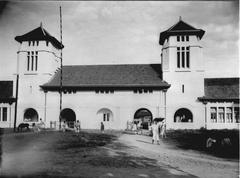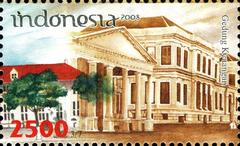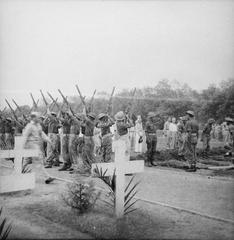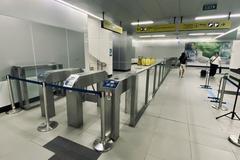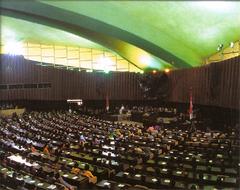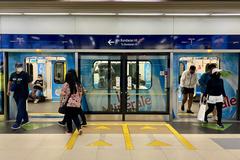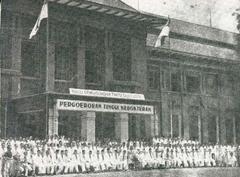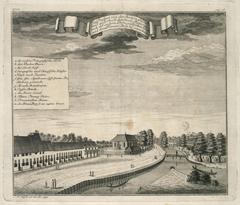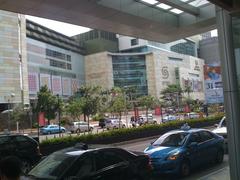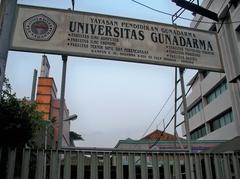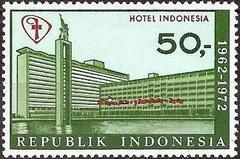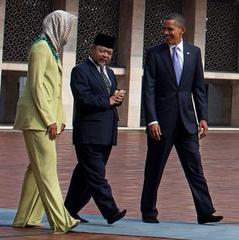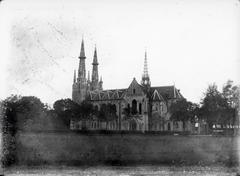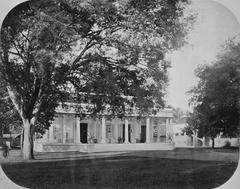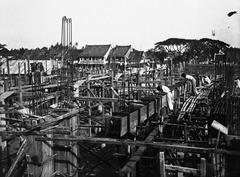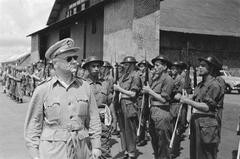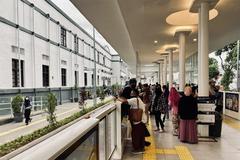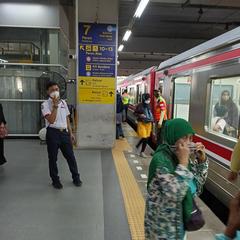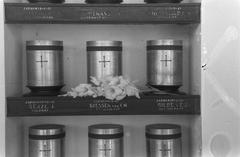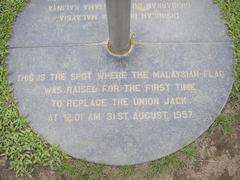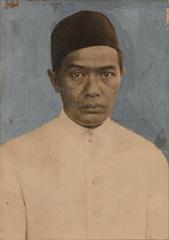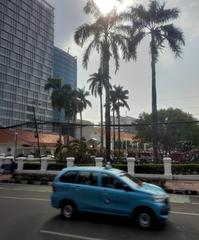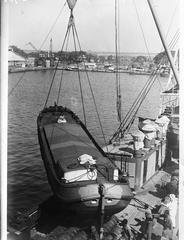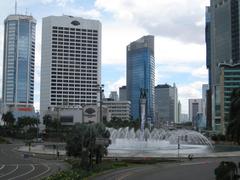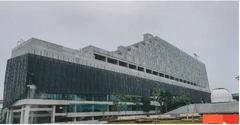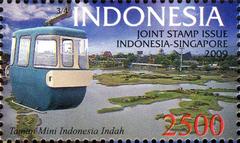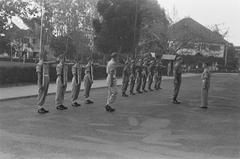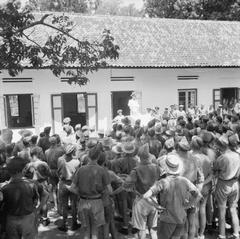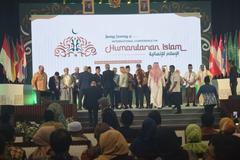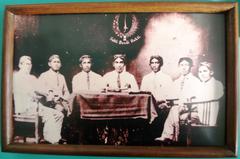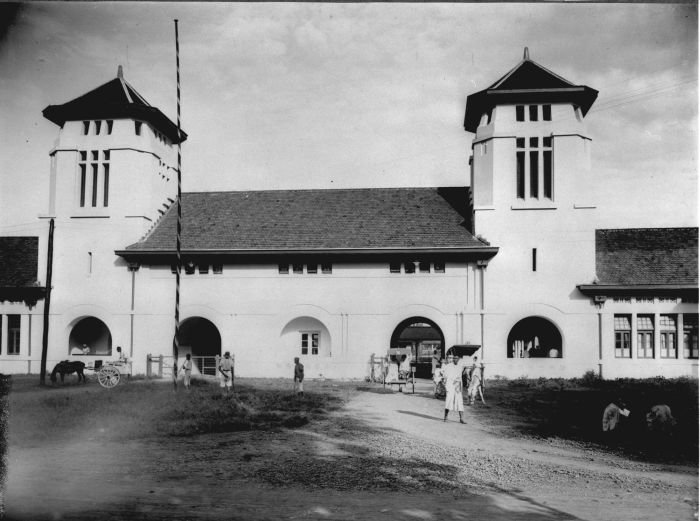
Gatot Soebroto Army Hospital Visiting Hours, Tickets, and Visitor Information in Jakarta
Date: 14/06/2025
Introduction to Gatot Soebroto Army Hospital and Its Significance
Gatot Soebroto Army Hospital—officially known as Rumah Sakit Pusat Angkatan Darat (RSPAD) Gatot Soebroto—is a landmark institution at the heart of Jakarta’s medical and military landscape. Established in 1819 during the Dutch colonial era, the hospital has evolved from its origins serving colonial military personnel to become Indonesia’s premier military medical center and a vital healthcare provider for the nation’s leaders, military, and civilians. Its enduring legacy spans pivotal periods in Indonesian history, including the Japanese occupation, the struggle for independence, and the country’s post-independence development, reflecting resilience and a dedication to public service (Open COKI).
Beyond its historical roots, RSPAD Gatot Soebroto is a modern hub for medical innovation, education, and emergency response. The hospital is renowned for its contributions to national crises—such as its leadership during the COVID-19 pandemic by implementing international preparedness standards (SSRN). Visitors can appreciate both its historical and contemporary significance through guided tours, proximity to prominent Jakarta landmarks like the National Monument (Monas) and the Presidential Palace, and its role as a symbol of Indonesia’s national identity (RSPAD Official Website).
This comprehensive guide provides prospective visitors, medical professionals, and history enthusiasts with essential information on Gatot Soebroto Army Hospital’s visiting hours, accessibility, nearby attractions, and practical travel tips. Whether you are interested in its historical legacy or planning a respectful visit, this resource draws on the latest credible sources to ensure a meaningful and informed experience (Open COKI, RSPAD News).
Table of Contents
- Early Foundations: Colonial Beginnings (1819–1942)
- Japanese Occupation and the Struggle for Independence (1942–1949)
- Post-Independence Transformation and Naming (1950s–1960s)
- Expansion and Modernization (1970s–1990s)
- Role in National Crises and Public Health
- Significance in Indonesian Military and Society
- Community Engagement and Cultural Impact
- Visitor Information
- Frequently Asked Questions (FAQ)
- Conclusion
- References
Early Foundations: Colonial Beginnings (1819–1942)
Founded in 1819, Gatot Soebroto Army Hospital is one of Indonesia’s oldest healthcare institutions (Open COKI). Originally constructed to serve Dutch East Indies military personnel and colonial administrators in Batavia (now Jakarta), its architecture reflects colonial design principles—open wards and high ceilings to allow ventilation suitable for the tropical climate. The hospital played a crucial role in combating tropical diseases such as malaria and cholera throughout the 19th century.
Japanese Occupation and the Struggle for Independence (1942–1949)
During the Japanese occupation of Indonesia, the hospital came under Japanese military administration and operated with limited resources. Nevertheless, it remained a key center for medical care. After Indonesia’s declaration of independence in 1945, the hospital was instrumental in treating freedom fighters and civilians wounded during the National Revolution, with Indonesian staff supporting the independence movement.
Post-Independence Transformation and Naming (1950s–1960s)
With Indonesia’s transition to full sovereignty, the hospital was designated the central hospital for the Indonesian Army. In recognition of General Gatot Soebroto—an esteemed National Hero who played a pivotal role in the military and the independence struggle—the facility was renamed in his honor (Open COKI). This renaming reflects the hospital’s commitment to serving the nation and its military.
Expansion and Modernization (1970s–1990s)
Over the decades, RSPAD Gatot Soebroto expanded its facilities, integrating advanced medical technologies and specialized departments to serve the growing healthcare needs of military personnel, government officials, and civilians. It also became a center for medical education and research, helping shape the next generation of healthcare professionals.
Role in National Crises and Public Health
RSPAD Gatot Soebroto has consistently served on the front lines during national emergencies, including natural disasters and infectious disease outbreaks. Notably, during the COVID-19 pandemic, it implemented the World Health Organization’s rapid preparedness checklist and published significant research contributions (SSRN). Between 2006 and 2024, the hospital produced 395 academic papers—86% of which are open access—demonstrating a commitment to advancing medical knowledge (Open COKI).
Significance in Indonesian Military and Society
Serving as the main referral hospital for the Indonesian Army and other branches of the armed forces, RSPAD Gatot Soebroto is a leader in military medical research and provides care for national leaders and dignitaries. Its dual role as a military and civilian hospital illustrates Indonesia’s integrated approach to national health resilience.
Community Engagement and Cultural Impact
The hospital’s cultural significance is reinforced through its location near Jakarta’s governmental and historical landmarks. It hosts national and religious ceremonies—such as Pancasila Day and Idul Adha—that foster community unity and commemorate Indonesia’s history (RSPAD News). Memorials throughout the grounds honor General Gatot Soebroto and other national heroes, connecting visitors to the nation’s heritage.
Visitor Information
Visiting Hours and Access
- General Visiting Hours: Monday to Friday, 8:00 AM to 4:00 PM. Weekend and holiday hours may be limited; check the official hospital website or call ahead for updates.
- Admission: Entry is free for visitors accompanying patients or attending appointments. Special guided tours or events may require advance registration or a nominal fee.
Accessibility
The hospital is centrally located in Jakarta and is accessible via public transportation, taxis, or private vehicles. Facilities include wheelchair access and assistance for visitors with disabilities. On-site parking is available, though it may be limited during peak hours.
Guided Tours and Special Events
While the hospital’s primary function is medical, educational and historical tours can be arranged in advance through the hospital’s public relations office. These tours are ideal for students, history enthusiasts, and those interested in Indonesia’s medical and military past.
Nearby Attractions
RSPAD Gatot Soebroto is within walking or short driving distance of several major Jakarta landmarks:
- National Monument (Monas): Iconic symbol of Indonesian independence.
- Presidential Palace: Center of national governance.
- National Museum: Extensive collections of Indonesian history and culture.
Travel Tips
- Dress modestly and respectfully, as the hospital is a working medical facility.
- Bring valid identification if visiting patients.
- Confirm visiting hours, especially around holidays or special events.
- Consider public transportation or ride-hailing services for easier access.
- Contact the hospital in advance to arrange guided tours or inquire about special events.
Frequently Asked Questions (FAQ)
Q: What are the Gatot Soebroto Army Hospital visiting hours?
A: Generally, Monday to Friday, 8:00 AM to 4:00 PM. Confirm ahead for weekend and holiday schedules.
Q: Is there an entry fee or tickets required?
A: No entry fee or tickets are required for standard visits; special tours may require prior arrangement.
Q: Can civilians access the hospital?
A: Yes, civilians may access public areas and medical services with appropriate referrals.
Q: Are guided tours available?
A: Educational and historical tours are available with advance notice through the hospital’s public relations office.
Q: Is the hospital accessible for people with disabilities?
A: Yes, the hospital is equipped with ramps, elevators, and assistance services.
Q: How can I get to the hospital?
A: Located centrally, the hospital is accessible by TransJakarta buses, commuter trains to Gambir Station, taxis, or ride-hailing apps.
Conclusion
Gatot Soebroto Army Hospital stands as a living testament to Indonesia’s intertwined narratives of military valor, public health advancement, and community resilience. Its historical architecture, commitment to healthcare excellence, and strategic role during national emergencies underscore its enduring importance. Visitors can engage with its heritage through guided tours, participation in national ceremonies, and exploration of nearby historical sites like Monas. Planning ahead for your visit—by checking visiting hours, accessibility, and travel tips—will ensure a respectful and insightful experience.
For the most current information about visiting hours, guided tours, and special events, consult the official RSPAD Gatot Soebroto website.
References
- Gatot Soebroto Army Hospital: Visiting Hours, History, and Jakarta’s Historic Medical Landmark, 2024, Open COKI
- Gatot Soebroto Army Hospital Visiting Hours, Tickets, and Historical Significance in Jakarta, 2024, RSPAD Official Website
- Role of Gatot Soebroto Army Hospital in COVID-19 Preparedness, 2023, SSRN
- RSPAD News
For further information about Jakarta’s historical and medical sites, download the Audiala app and follow our social media channels for the latest updates and travel tips.
